What Is Natural Hair Shrinkage? 8 Best Ways To Combat It
Your hair texture and porosity play a huge role in this phenomenon!
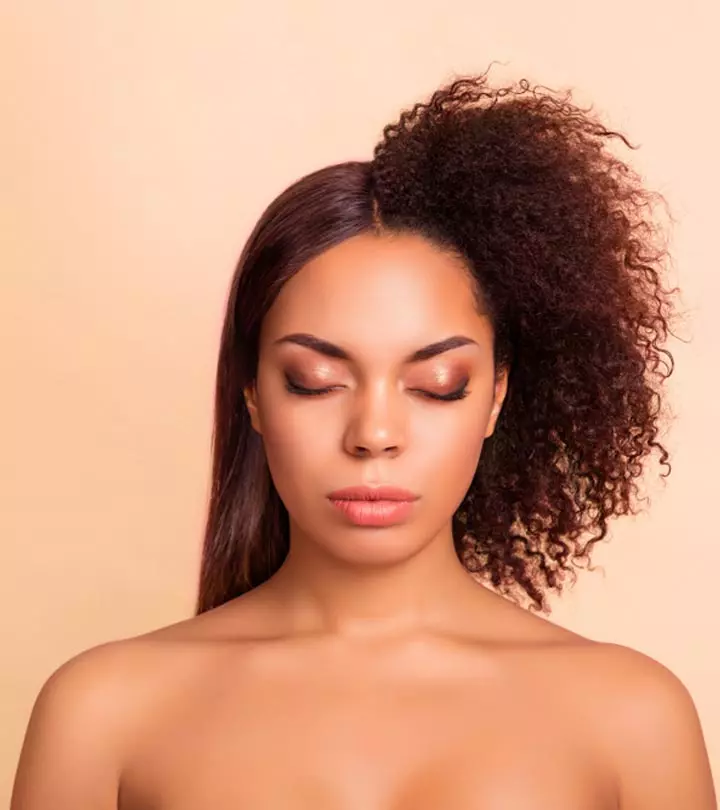
Image: Shutterstock
Natural hair is gorgeous and offers a wide range of styling options. However, most people with these locks need to deal with natural hair shrinkage. Though shrinkage is not unhealthy, it stops you from seeing (and enjoying) the actual length of your beautiful locks. You can easily retain the original length of your natural hair without shrinkage. Wondering how you can do that? This article explores what shrinkage is, why natural hair shrinks, and some effective ways to reduce it. Scroll down to learn everything about this hair phenomenon!
In This Article
What Is Natural Hair Shrinkage?
Natural hair shrinkage happens when your curly, kinky, and coily hair shrinks to form tight coils. Natural hair may shrink around 20% to 80% of the natural length. However, compared to type 3 hair, type 4 hair can shrink significantly and appear much shorter than the actual length.
Let’s understand the science behind natural hair shrinkage.
Key Takeaways
- Type 4 hair can shrink significantly more when compared to type 3 hair. It also can appear much shorter than its actual length.
- The shrinkage level depends on hair porosity and the extent of the damage.
- Banding can reduce shrinkage significantly. It involves stretching and securing small hair sections with snag-free elastic bands.
Why Natural Hair Shrinks
Shrinkage is a sign of healthy hair. Natural hair is more porous compared to any other hair type. It can easily soak water (just like a sponge) to expand and stretch. As a result, damp natural hair may appear elongated (due to the water weight), and the curl pattern becomes apparent. However, when the water evaporates, the hair will shrink to its original form. It will lose the water weight and appear puffed up.
You may experience shrinkage in humid weather conditions and if you sweat profusely. However, the shrinkage level also depends on the hair porosity and damage levels. High porosity hair may experience less shrinkage as it absorbs moisture real quick. On the other hand, low porosity hair undergoes the maximum shrinkage.
4C hair type undergoes the maximum shrinkage as it cannot hold on to moisture for long. That’s why 4C curls are tighter and denser than the other curl types.
However, if your hair does not shrink even after you wet it, that may indicate heat damage. If you want to keep your curls manageable, here are some ways to control the shrinkage.
8 Effective Ways To Reduce Natural Hair Shrinkage
If you have natural hair, you know how tricky shrinkage can be. But don’t sweat it, there are plenty of tips for retaining length for natural hair that can help you show off those gorgeous curls without the unexpected shrinkage. Below are some effective ways to reduce natural hair shrinkage.
1. Leave-In Conditioners
Leave-in conditioners can lock in the moisture, keep the strands hydrated, and minimize shrinkage.
Use conditioners with plant oils and other hydrating ingredients to prevent dryness. This will also help reduce breakage and define your curl pattern.
2. Follow A Moisturizing Routine

Using moisturizing hair products can prevent shrinkage, irrespective of your curl type. A regular moisturizing routine also helps retain hair length. You may buy a hair moisturizer containing beeswax or silicone, hair oil, and styling gel or lotion. Use these products regularly, especially at the ends that tend to be more prone to hair loss, hair thinning, hair weakness, and hair reduction.
Follow this 3-step moisturizing routine:
- Section your hair and apply moisturizer evenly to each hair section.
- Follow it up with hair oil to lock in the moisture.
- Set your hairstyle with a hair lotion or gel for a lustrous look.
3. Plaits and Twist Outs
Plaiting and twisting your natural hair can reduce shrinkage significantly. Depending on the hair porosity, these hairstyles can offer bouncy and manageable curls. You can divide your hair into small sections and apply oil. Braid and twist each hair section to keep them stretched. Undo the sections after a few hours and style them.
4. Try A Blowout
A blowout is the best way to stretch your hair, increase its length, and keep it manageable. However, you have to prep your hair to prevent heat damage and breakage. These issues can also lead to hair fall and hair shedding. Use a good heat protectant and a deep hair conditioner before blow drying. Also, use a comb attachment with the hair dryer to control the amount of heat your hair is exposed to. This will also help stretch the hair.
 Did You Know?
Did You Know?5. Hair Bun

Tying your damp hair into a high bun is another way to minimize shrinkage. However, do not secure it too tightly to prevent creases. Keep your hair in a bun for at least 1-2 hours, and then style it.
6. Roller Sets
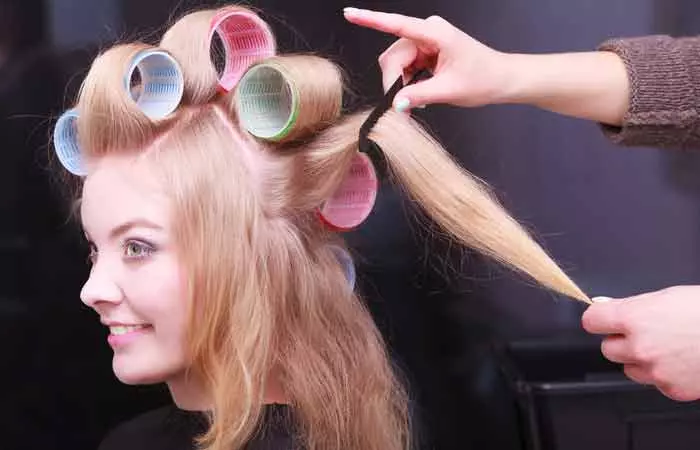
Stretching the hair with roller sets is one of the least damaging ways to prevent natural shrinkage. They are often used on wet hair to stretch it while air drying.
To use roller sets:
- Comb out hair knots and apply hair moisturizer.
- Divide your hair into several small sections.
- Use consistent tension and roll each section into smooth rollers.
- Leave your hair to air dry.
This technique works well with freshly washed wet and dry hair.
7. Bantu Knots
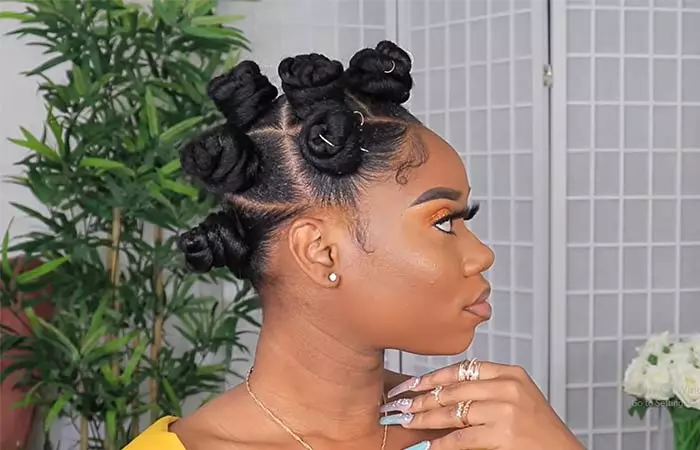
This protective hairstyle helps stretch the strands minus any heat. It involves twisting the hair section into knots. However, creating this style requires skill. You have to twist the hair sections in the same direction and secure the knot tightly. A hair damage prevention tip to remember: brush your hair thoroughly before styling and use hair moisturizers properly.
8. Banding
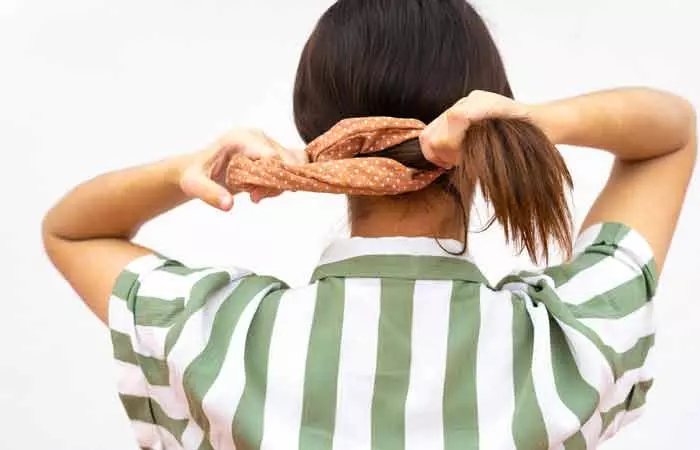
This is another great way to make your curls appear long. Banding involves stretching and securing small hair sections with snag-free elastic bands. You may try banding freshly washed damp hair.
The blogger shared her experience with hair shrinkage. Despite a personal dislike for shrinkage due to detangling challenges, she also acknowledges the versatility it brings to styling options. She also writes about how she tries to avoid shrinkage, stating, “There are several methods of stretching hair. I normally use hair bands to tie my hair in four or six sections and let it air dry like that or I let it air dry halfway without stretching, then tie it into two pompoms for the rest of their drying time, which is often overnight. When I have a bit of time on my hands I twist the hair up into about twelve chunky twists and leave them overnight. In the morning I have awesomely stretched hair… (i).”
 Quick Tip
Quick TipCheck out this easy wash-and-go banding tutorial here.
So, the question remains – is hair shrinkage good or bad for your locks? Find out in the next section.
Is Hair Shrinkage Good Or Bad?
Hair shrinkage is neither inherently good nor bad but rather a natural characteristic of curly or textured hair. Shrinkage occurs when the hair appears shorter than its actual length due to its curl pattern. Some people may view it as “bad” because it can make your hair seem less manageable or make styling it difficult. However, shrinkage is also a sign of healthy, well-moisturized hair, showcasing its elasticity and natural texture. Embracing shrinkage can lead to diverse styling options and an appreciation for the unique beauty of textured hair. It ultimately depends on personal preference and how you choose to style and care for your hair.
Infographic: How To Do Bantu Knots On Shrunken Hair
Natural hair shrinkage is not a cause for concern but a sign of healthy hair and defined curls. However, it may get difficult to manage if you have tightly coiled type 4 hair. In such cases, it is best to learn how to manage them with a few effective hairstyles. Check out the infographic below to learn how to do Bantu knots to manage your shrunken hair.
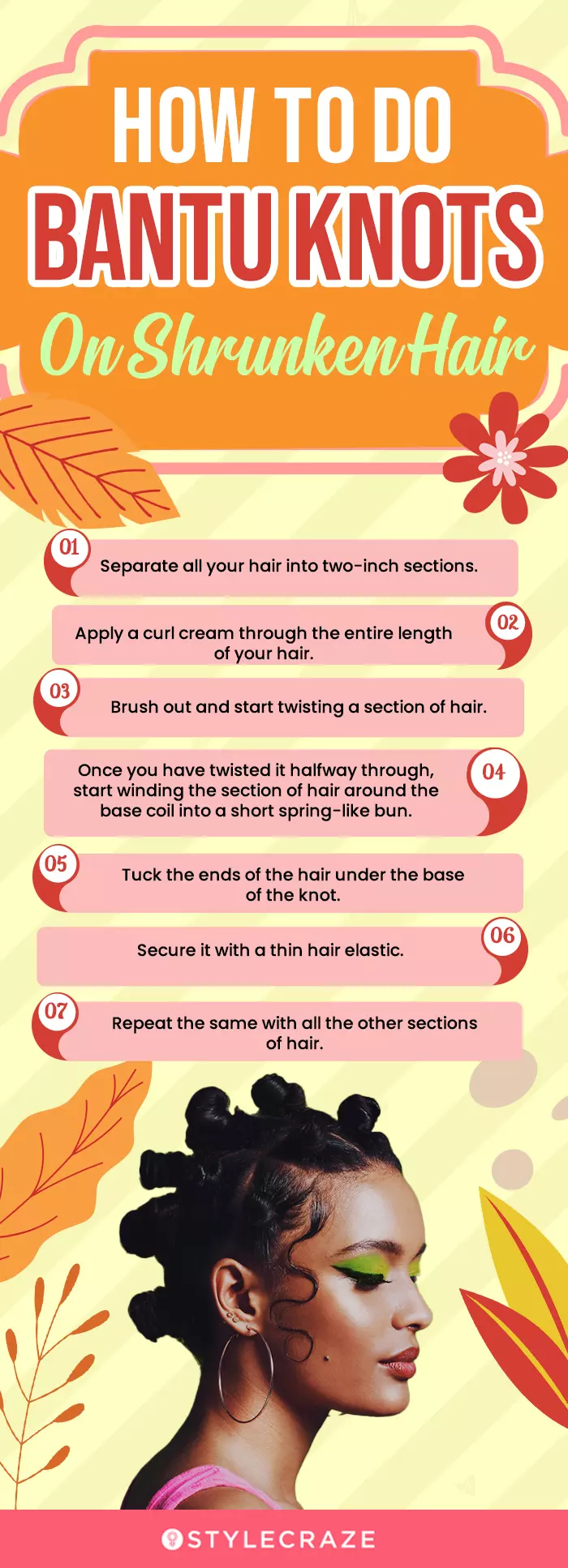
Illustration: StyleCraze Design Team
To Sum Up
Do not be alarmed by natural hair shrinkage. It is a sign that your hair is healthy and the curls are fine. You cannot stop your gorgeous type 4 hair from shrinking. However, you can manage the shrinkage and retain your hair length. Follow the tips discussed in the article, and keep your hair moisturized and nourished. Similarly, go for hairstyles that will protect the strands and reduce shrinkage. All the tips suggested above will help keep your hair healthy, prevent breakage, and retain its length.
Frequently Asked Questions
What impact does humidity have on hair shrinkage?
Humidity increases moisture in the air, causing natural hair to absorb it. This enhanced moisture can lead to the tightening of curls and a reduction in length, altering the hair’s texture and causing shrinkage.
How do you prevent shrinkage in wash-and-go?
If you are following a wash-and-go routine, wash your hair with cold or lukewarm water. Do not blowdry your hair. Instead, let it air-dry. This may help prevent shrinkage.
Does stretching your hair damage it?
Excessive stretching can damage your hair and change its texture. Also, using heat styling tools for stretching can lead to hair breakage.
Does hair shrinkage affect hair growth?
No, hair growth is not affected by hair shrinkage as hair growth is determined by genetics, nutrition, and hormone regulation.
Does the length of hair affect shrinkage?
While the length of hair does not affect hair shrinkage directly, shorter hair is more prone to shrinkage. This is because shorter, coiled hair is more tightly packed, which gives them less room to elongate and more room to shrink.
Can hair products or ingredients contribute to hair shrinkage?
Hair products that contain alcohol or sulfates can strip the hair of its all moisture, making them more prone to shrinkage. Also, products with heavy oils or butter may weigh down the curls and make them appear shrunken.
Does hair shrinkage affect hair volume?
Yes, hair shrinkage can affect hair volume. When curly or coily hair shrinks up, it can make them appear more compacted and less voluminous than usual.
Embark on a journey to master the art of maintaining and moisturizing 4C natural hair with the video given below. Discover the power of the LCO method and conquer shrinkage with confidence.
Personal Experience: Source
StyleCraze's articles are interwoven with authentic personal narratives that provide depth and resonance to our content. Below are the sources of the personal accounts referenced in this article.
i. Elastic Hairhttps://jolienaturelza.wordpress.com/2014/12/01/elastic-hair/
Read full bio of Tiffany Young
Read full bio of Ramona Sinha
Read full bio of Anjali Sayee
Read full bio of Monomita Chakraborty









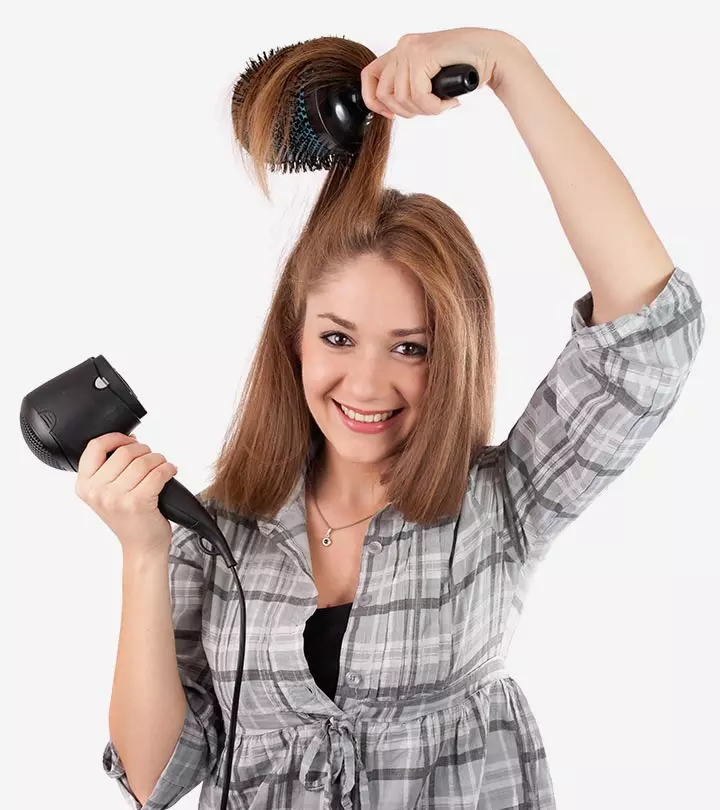
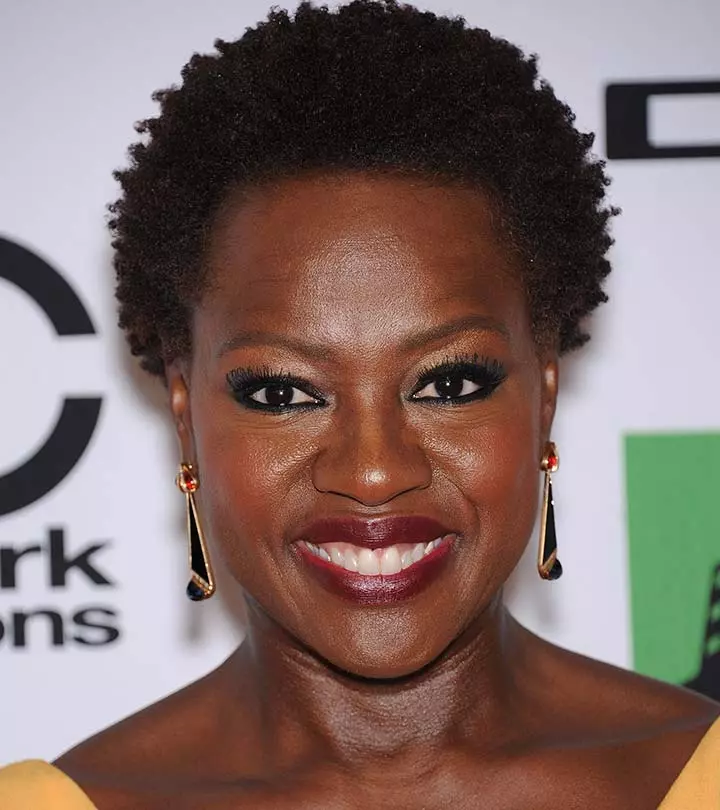

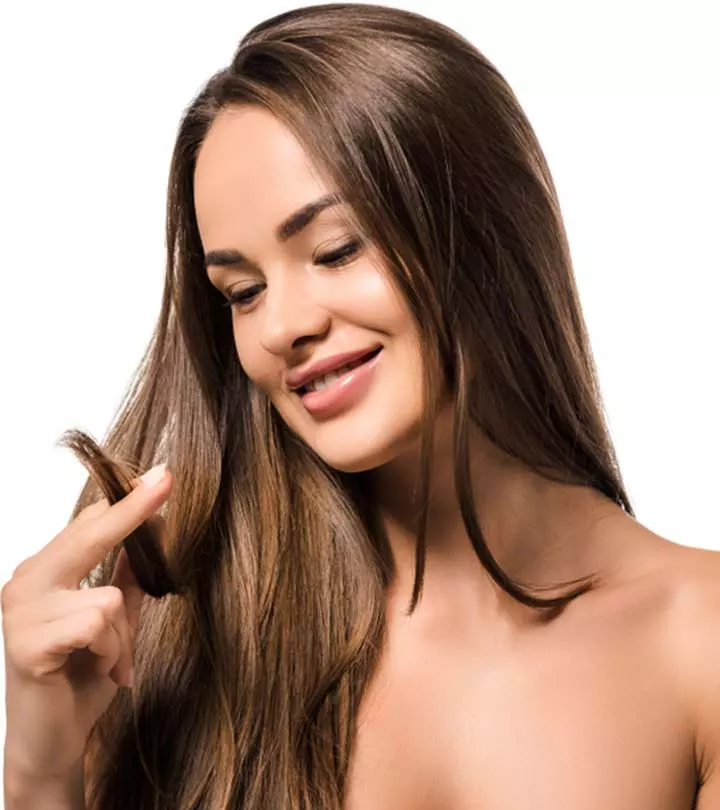

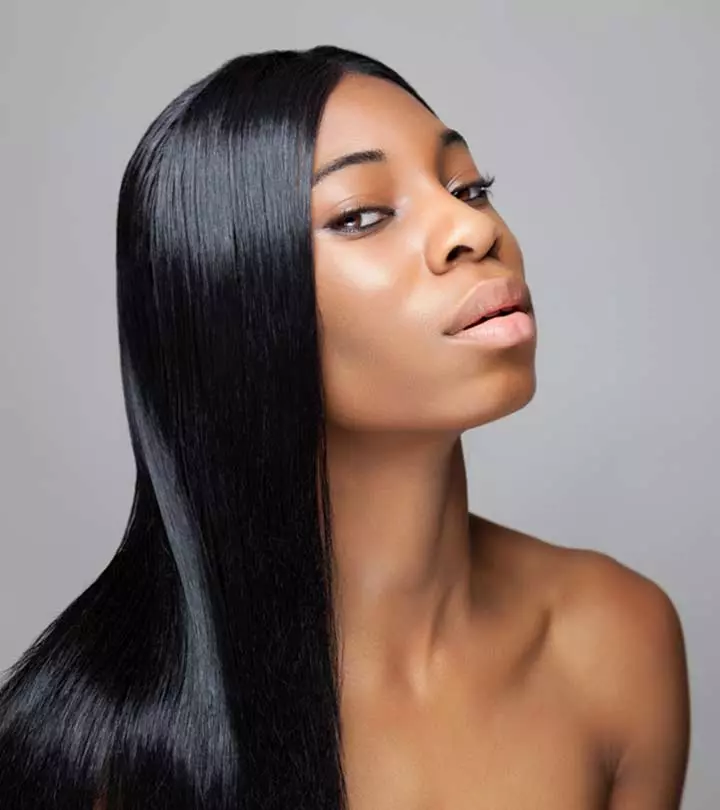

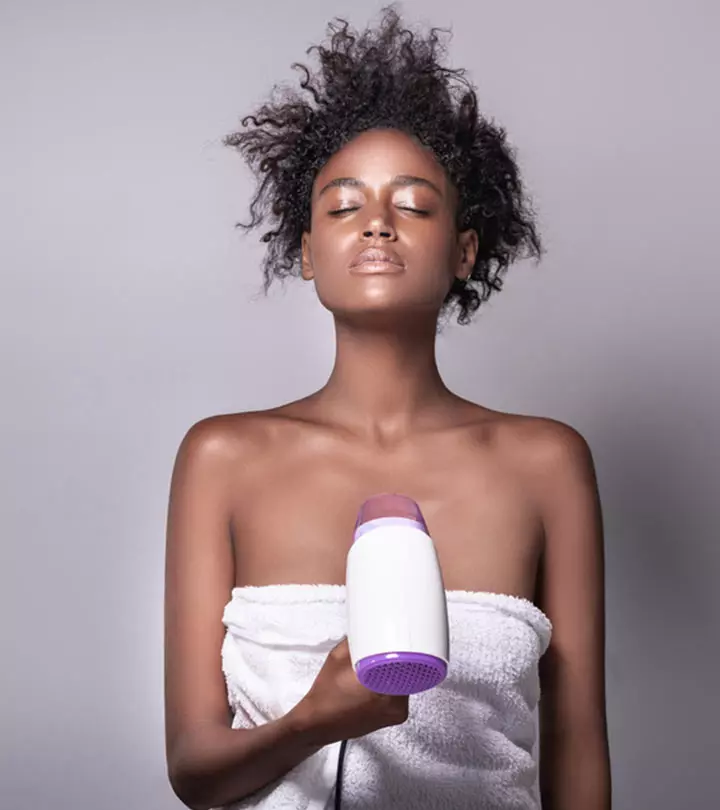

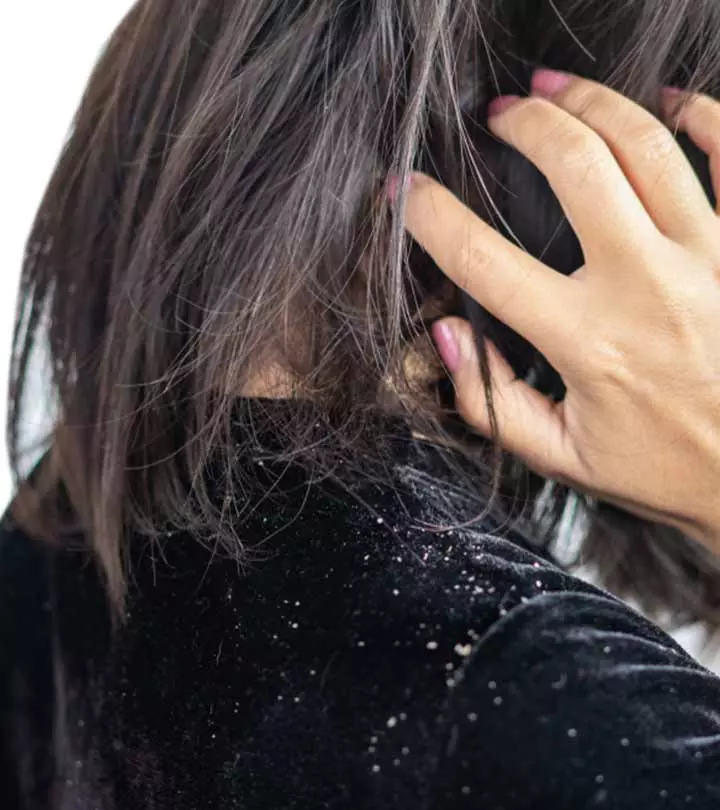

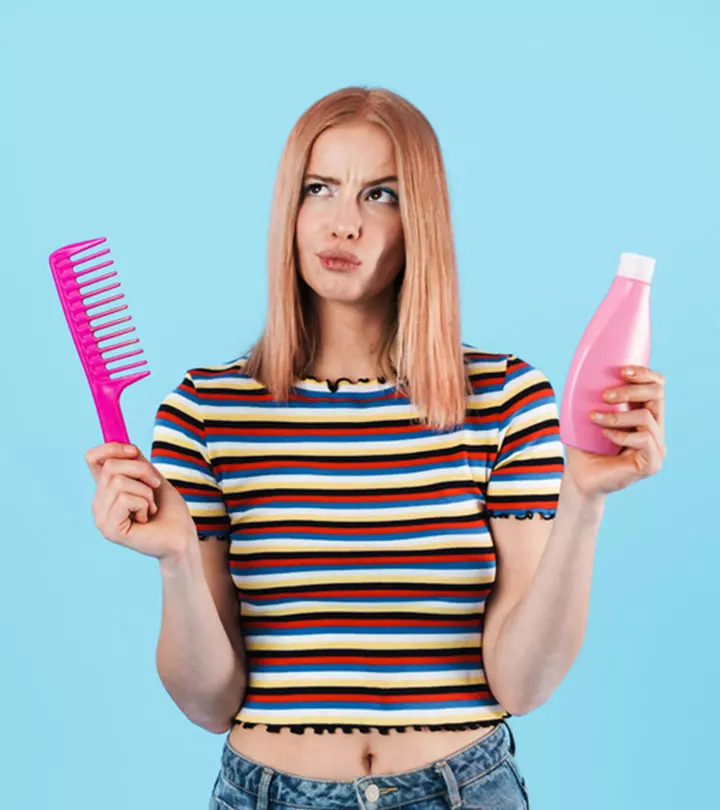





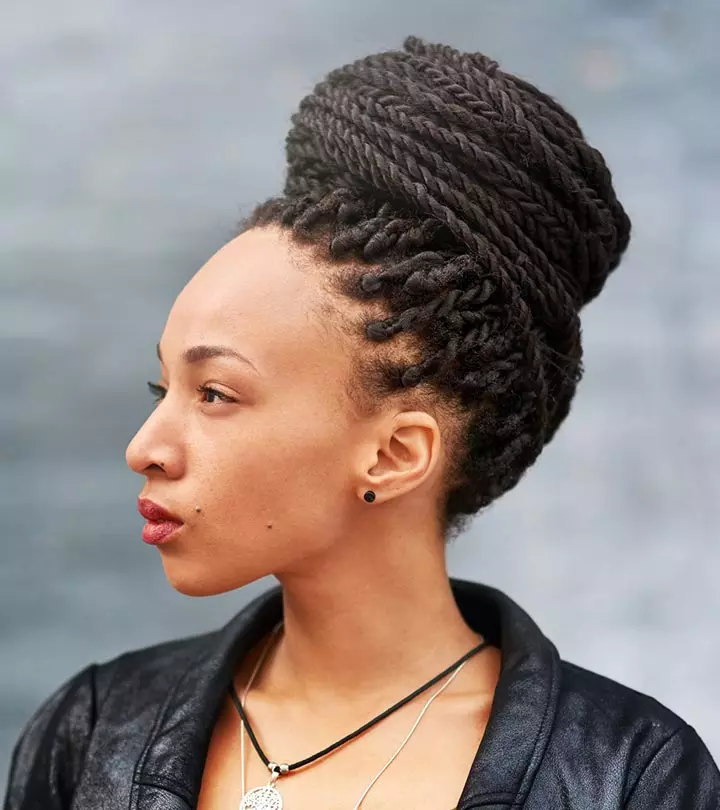
Community Experiences
Join the conversation and become a part of our empowering community! Share your stories, experiences, and insights to connect with other beauty, lifestyle, and health enthusiasts.